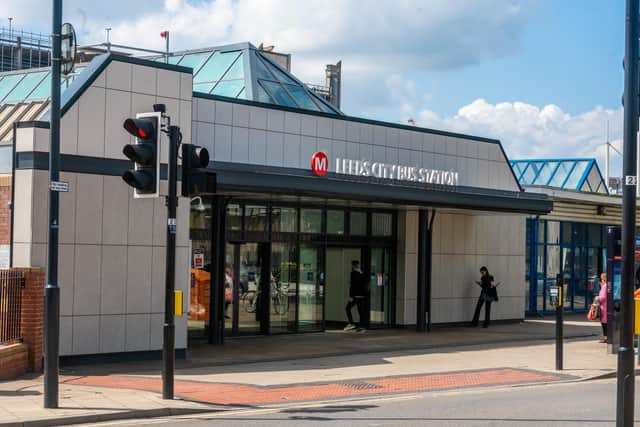People in West Yorkshire want bus services franchised so why are operators fighting it? - Matthew Topham
There are just days to go until Tracy Brabin, as West Yorkshire Mayor, closes her consultation on taking local buses into public control. It would be the biggest change to the region in decades.
Under the proposed franchising system, the network is designed by local authorities (as with Transport for London), with private operators only allowed to run services if they win a contract from the Mayor. They must deliver the routes, fares, and standards agreed, receiving a small fee but passing profits to the public authority.
Advertisement
Hide AdAdvertisement
Hide AdUnsurprisingly, profit-making companies are against this democratic control. Private operators argue the final say over services should remain in their hands, through a so-called Enhanced Partnership (EP). EPs are non-compulsory agreements between willing operators and local authorities that can become legally binding.


An EP was set up in April 2022. Research shows it isn’t able to deliver the Mayor’s ambition for the region. First and Arriva are now promising further concessions in a new deal, called Enhanced Partnership ‘Plus’. They even hired a PR firm to push this, foregoing advertising revenue to promote the EP+ through posters on their buses. But what do the public think?
When Survation polled 1,018 adults in West Yorkshire, they found just 33 per cent trusted bus operators “to provide reliable information during the consultation process” on public control. The operators’ most striking claim, made by boss Paul Turner in a video online, is that their alternative model gives “the people of West Yorkshire the public control they desire”.
The legal set-up of the EP+ means all changes depend on the companies’ agreement. At its heart, the companies can refuse suggested improvements from the Mayor, unlike under franchising. Does that sound like public control?
Advertisement
Hide AdAdvertisement
Hide AdEven where EP agreements are made, private power undermines them. On the same day the Mayor handed operators £11m to lower their single fares to a £2 cap, Arriva hiked its £1.80 fare up to the cap without warning.
This lack of control cuts against another bus company claim: that reforms under continued private control would be faster and more certain.
The Combined Authority announced it would introduce the EP deal with operators in June 2021. It did not formally begin until April 2022. The Mayor had to spend 10 months negotiating.
What improvements have there been in these two years? The public might well say very little.
Advertisement
Hide AdAdvertisement
Hide AdWe’ve lost many evening and weekend services and some entire routes, with further cuts threatened. A driver shortage sparked a massive reliability crisis which saw many buses late or cancelled. All while fares for frequent commuters have increased.
When the Enhanced Partnership was negotiated, the plan was to roll out eight schemes that legally bound politicians and bus bosses, all scheduled for 2022. Only two were delivered. Official reports say that these “lengthy timescales [...] delay benefits” for the public, citing this as a key weakness of the Enhanced Partnership.
Figures show that a staggering 50 per cent of the operating costs of West Yorkshire’s bus network are already paid for with public money. This may be higher as the Mayor provides ever more in subsidies.
On the topic of money, operators also argue their scheme offers the best value for the public purse, despite franchising adding 50 per cent more in total economic benefits (£1.5bn).
Advertisement
Hide AdAdvertisement
Hide AdIt also misunderstands the current system. Right now, the public invests nearly £100m a year to boost services in the region. The public takes that financial risk because it benefits us all to have better services and more people using the bus.
If these interventions lead to more passengers and ticket sales, who gets the profits? Under private control, they all go to the operators. Any promises to share the benefits are not legally binding, nor do they amount to a meaningful return on investment.
The Mayor has made it clear only franchising would see “funding available for more bus services that otherwise would form operators’ margin[s]”. Only then are profits from public investment actually in public hands.
And it is worth remembering that, in Jersey, franchising saw costs to the council drop by £800,000 a year while passenger numbers jumped 32 per cent.
Advertisement
Hide AdAdvertisement
Hide AdPassengers used to waiting for timetabled services that never come may be unsurprised that the operators’ arguments for continued private control are a let down.
Why the fight back? Perhaps because franchising halves their profits to fund new routes for all, not expensive holidays for a few shareholders.
Matthew Topham is Better Buses for West Yorkshire campaigner at We Own It.
Comment Guidelines
National World encourages reader discussion on our stories. User feedback, insights and back-and-forth exchanges add a rich layer of context to reporting. Please review our Community Guidelines before commenting.